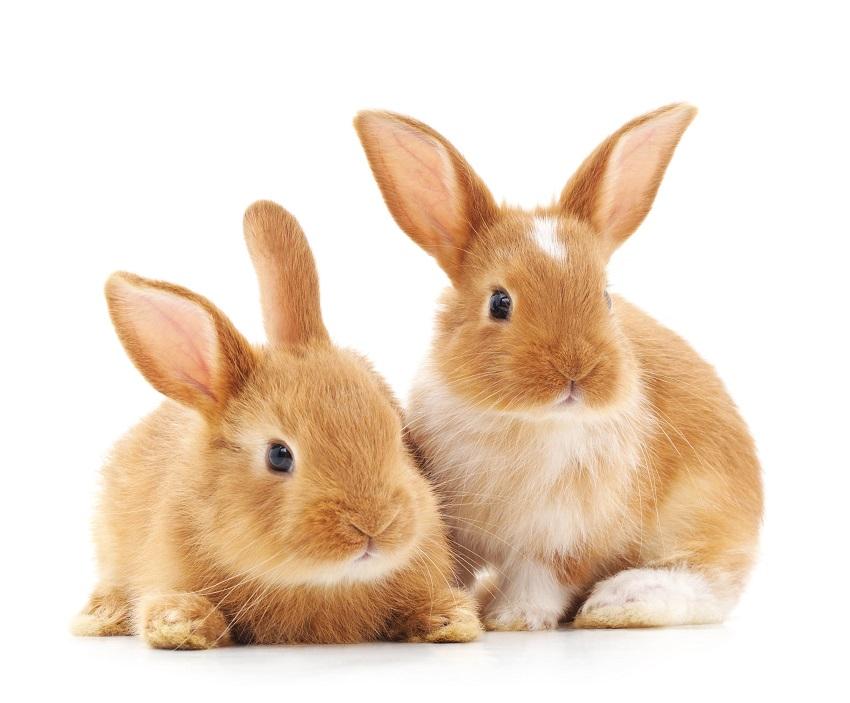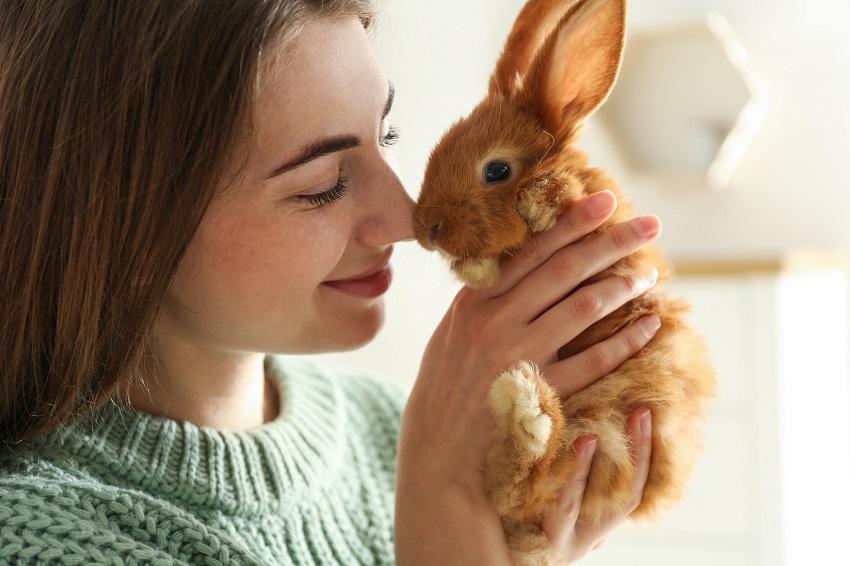There are many common rabbit diseases that must be taken care of carefully. The first thing you have to do is identify the disease affecting your rabbit and avoid administering the wrong medication to prevent fatal consequences.
Some signs indicating that your rabbit is unwell include:
- Loss of appetite
- Lethargy
- Excessive shedding of fur
If these signs appear, promptly conduct an examination to determine the illness affecting the rabbit. This way, you can administer the right medication and specific care.
Now, what are the potential ailments that can affect rabbits? Below are several types of diseases you should be aware of, along with handling tips and preventive measures to ensure your rabbit’s ongoing health.
Common rabbits diseases
It is important to note that rabbit diseases can manifest physically and non-physically. You should regularly conduct checks to determine whether your rabbit is healthy. Here are some types of diseases in rabbits that you should know:
1. Scabies Disease
Common rabbit diseases is scabies that causes fungus and scabs in a rabbit’s ears.
Symptoms of this mite-caused disease include the appearance of scabs in the ears that can spread to the facial area.
Treatment for scab ears due to scabies is by applying sulfur ointment daily or taking the rabbit to the vet clinic for further treatment.
Additionally, maintain the cleanliness of the cage because these mites can proliferate rapidly in a dirty environment.
2. Swollen Rabbit Legs
A disease that affects these cute animals is swollen rabbit legs. One of the causes is wounds on the paw. Usually, the wound becomes infected, causing the rabbit’s leg to swell.
Symptoms that arise can be seen from changes in the size of the rabbit’s legs, and the rabbit’s movement becomes limping to the point of being unable to walk.
3. Eye Inflammation
There are many causes of eye diseases in rabbits, such as dust to bacterial infections. This means that a dirty environment can cause eye inflammation in rabbits. Symptoms of this disease include red eyes and discharge.
You can use eye drops commonly used for humans on rabbits with eye inflammation.
4. Constipation
Providing feed with too much fiber without sufficient water will cause rabbits to become constipated. You can recognize constipation in rabbits from too little feces and urine, and the rabbit’s restless behavior.
5. Inflamed Nipples
Inflamed nipples or mastitis will make a rabbit’s nipples hard and unable to release milk. It usually occurs in rabbits that have just given birth. Mastitis can occur due to improper weaning.

6. Diarrhea
In addition to constipation, diarrhea is also a digestive disease in rabbits that occurs due to errors in feeding. Like diarrhea in humans, rabbits affected by diarrhea also excrete a lot of watery feces.
The cause of diarrhea in rabbits is the provision of stale and irregular feed. Change the feeding pattern to cure diarrhea. To replace fluids in the rabbit’s body, you can give it turmeric water.
7. Worm Infestation
There are many worms that can infect rabbits, such as tapeworms, roundworms, and whipworms. These worms can be transmitted to other rabbits through feces. Decreased appetite, weight loss, and lethargy are symptoms of a rabbit infestation.
Administering deworming medication and promptly cleaning the cage once the rabbit defecates are the most appropriate steps to deal with worm infestations.
8. Pasteurellosis
This is another disease that affects the rabbit’s digestive system. Usually, rabbits will produce white-colored feces when infected with Pasteurellosis. Maintaining environmental conditions and regularly cleaning rabbit feces is the best step to overcome this disease.
9. Pneumonia
Pneumonia in rabbits is caused by bacteria with symptoms of difficulty breathing, nasal discharge, and bluish eyes and ears. The bacteria causing pneumonia in rabbits grow very rapidly in damp cages.
To overcome it, you must maintain air conditions in the cage and provide nutritious feed to boost the rabbit’s immune system.
10. Rabbit Lost Appetite
Loss of appetite in rabbits can occur for various reasons, such as during old age, suffering from a disease, or experiencing stress. As an owner, you must find a solution so that they can still eat, as not eating can be dangerous to their health.
One way to restore their appetite is to provide them with free space once a day. Let them run around in that area. Then, avoid handling the rabbits too often as they are sensitive animals. Lastly, provide them with nutritionally balanced food.
***
If we look at the list of those common rabbit diseases, it turns out that rabbits are susceptible to various illnesses. Therefore, it is crucial to provide proper care for rabbits. Handling rabbit diseases indeed requires the right and appropriate steps.
Ensure a happy and healthy life for your rabbits.


Comments are closed.